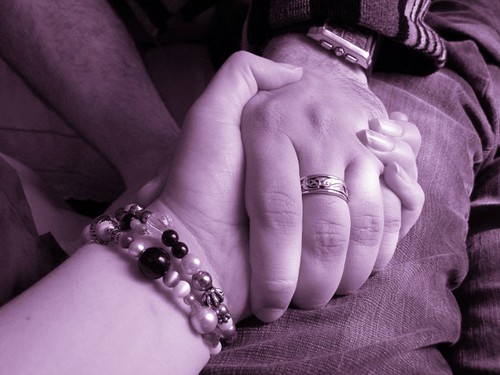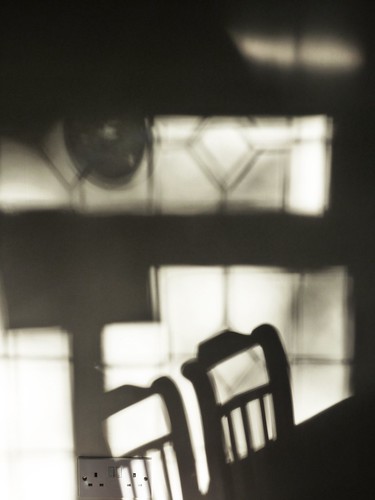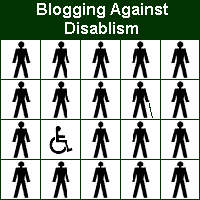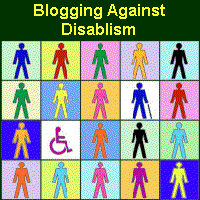In the Ipswich Star last week, a lady called Sarah Ashford spoke about the terrible situation the UK government's Bedroom Tax has placed her in;
“It’s a vicious attack on the most vulnerable people in society, especially somebody like me who didn’t have a choice to be born disabled. I was a breech birth back in 1964. I should’ve been born by caesarean and I should’ve been a normal baby.”It's not in any way Ashford's fault that she is forced to speak like this, invoking the events of fifty years ago to prove that she is not to blame for her impairment. So much mainstream discussion of disability - especially the effects of austerity cuts - hinges on this language, this need to demonstrate that the people effected are worthy of charitable treatment. Words like innocent, genuine and victims pepper even the language of some disabled activists, although the implication is quite clear: there are those of us who are innocent victims of circumstance and there are those who brought misfortune upon themselves.
..........
 |
| Hideous! A pale-skinned foot with a heavily bandaged big toe. |
- I had cut my toe nails too short.
- I had let my toe nails grow too long.
- I hadn't rinsed my toes when washing.
- I hadn't dried my toes after washing.
- I had let my feet get too hot.
- I had let my feet get too cold.
Or, most ironically, given my circumstances,
- I had been walking about in impractical ill-fitting high-heeled shoes.
Some of these suggestions were made by family, others by medical professionals. I was so relieved when finally I saw a podiatrist, who explained in CSI-style detail that I had badly stubbed my toe (she could tell the precise angle it had happened at and everything).
It's ridiculous I should feel such relief. Any other cause would have been just as accidental. I struggle with washing, drying and maintaining a stable temperature, and poor co-ordination makes my nail-cutting decidedly inexpert. The podiatrist said this long winter has brought about something of a chilblain epidemic. This stuff happens to people.
But I know my responsibilities. I have to be trying my best, to be as healthy as possible. I have to do all the right things, and be seen to be doing all the right things, to avoid relapse, infection or complication. So none of it is ever my fault. Other people can afford to make themselves vulnerable in small unwitting ways, but not me. Any infections I get will be despite my very best efforts.
Other people have it even worse. Some years ago, I was awkwardly introduced to a friend of a friend who had my condition, and believed that she was improving with the help of some extremely expensive, extremely dubious alternative therapy. Her parents were paying ten thousands pounds a year - much more than my annual income - on these bizarre potions from a man who had convinced her that she was now cured but she had to keep taking the potion and seeing him regularly because her body hadn't let go of all her symptoms (or, in fact, any of them).
She was a very difficult person to speak to, as she thought everyone should be doing the same.
She said, "You've always got to be trying something to get better. Otherwise, you've given up."
.....................
.....................
We've developed a morality around health and healthy living to rival previous generations' interest in other people's sex lives. Food, which should be all about fuel, nutrition, social activity and sensual pleasure, has acquired the language of sinfulness and virtue; this devilish chocolate cake, this goody-two-shoes salad. People sometimes boast about doing physical exercise they actually hate, in much the same way a Medieval penitent might have celebrated how very very itchy his hair shirt was.
The wages of sin are not only death, but illness and disability in the run-up.
There's a get-out clause, of course, and that's if you can stay healthy, looking healthy. You may still boast of your efforts to steer clear of those satanic carbs and to practice Zumba like Saint Francis of Assisi, but as long as you remain non-disabled and slim enough, it's all hypothetical. It's all a bit of a joke really if you eat nothing but pizza and cigarette smoke. Only if you're disabled or fat is an adult likely to get earnest advice about diet, exercise, drugs and getting enough fresh air and sunshine. And since some of that advice will contradict (carrots are a panacea; carrots are a poison), we can never get it right.
It's particularly hard for disabled people to make healthy choices, let alone be seen to make healthy choices. Pain and distress can make avoiding drink, cigarettes and drugs more difficult. Many prescription drugs are fairly bad for you, especially long term; it's just that in the balance, their effects are preferable than the alternative. Digestive problems, poor care, poverty, allergies and intolerances mean that disabled people often have diminished choices about what they eat. Poor mobility and metabolic problems mean disabled people have less choice how much weight they carry. Physical impairment, as well as poor access to gyms and swimming pools, social anxiety and the reasonable fear of exposing one's body to a world that has declared it substandard, are all barriers to exercise.
Yet despite all this, we are under the greatest pressure to try. To try and do the right things. To be seen to be doing the right things.
...............
Obesity is a very popular subject for moral panic. It's supposedly about gluttony, an old-fashioned sin and one we're all vulnerable to, because we all have to eat and most of us enjoy it. It's also about beauty standards, or their opposite and the thrilling opportunity - so rare these days - to judge others by their appearance. And then it is about health; people not looking after their own health, which is, apparently, a sin against us all.
This, despite the fact that half of us are overweight, the population overall continues to live longer and healthier lives.
In her post Chronic Illness, Diet & Food, Em describes about how, faced with her particular collection of complex physical and mental health issues, her doctors prefer to focus on her weight:
"I've hit a point where I'm too tired to fight it any more. The crushing pressure has become too much and given my other health issues it's just too much extra for me to keep battling on against. I have grudgingly agreed to see the local "Weight Management Services". Not because I want to lose weight but because I don't want to spend over half of every appointment I attend talking about my size."We know our responsibilities. We have to be seen to be trying our best. We have to be blameless.
.............
The focus on the innocence or responsibility of disabled people removes the need to consider the physical, social and political barriers which set artificial limitations on our lives, above and beyond the problems our impairments cause. We are either individually responsible for our limitations, for our worklessness, for our difficulty getting up stairs or staying awake. Or we are the innocent victims of shocking and terrible events to be pitied, cried over during telethon evenings and forgotten about.
I think of this when people question our numbers. The World Health Organisation says we are one in seven. Both our Prime Minister and our Minister for Disabled People have both stated their intuitive disbelief about the number of people legitimately claiming disability benefits (much much less than one in seven). Last week, Ester McVey stated;
"Only three per cent of people are born with a disability, the rest acquire it through accident or illness, but people come out of it. Thanks to medical advances, bodies heal."Only people who see impairment as an uncomplicated individual tragedy would be so anxious about the numbers. Because great personal tragedies, unthinkable, unsolvable, life-sucking tragedies - the type where you think, How do people go on? are thankfully quite rare. Every day bad luck life events? Really common. People fall and damage their back forever. People get an infection and never recover (hopefully not a toe infection!). People have bad experiences and are left with mental scars. People's own bodies and brains rebel against them. It sucks. Folk have to grieve. But then we try and get on with life.
And then we hit fresh barriers. The built environment, systems, prejudice, media representation and public attitudes. And the responsibility, ever to show ourselves to be innocent in all this.
Because it's never anyone else's fault if the world is built for strong legs, strong sight and hearing. It's not anyone's fault if someone is stared at, sometimes shouted at, whilst going about our daily business, vulnerable to abuse, discriminated against at every turn. It's not anyone's fault if we find that people like us are demonised in the press and in fiction, and that those messages slowly but surely sink in, changing the way in which we understand ourselves, forcing us to recount our medial histories and prove ourselves blameless.
These things are all tragic accidents.











